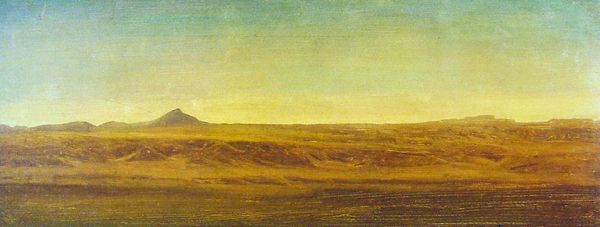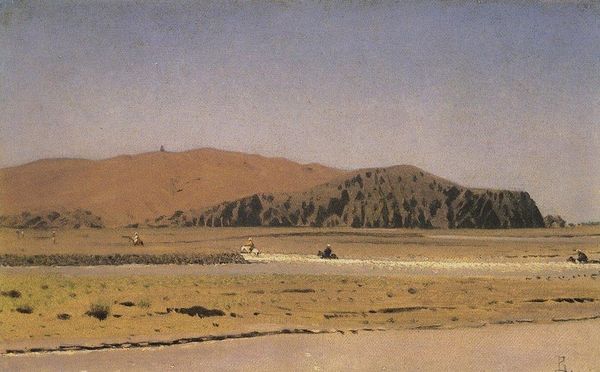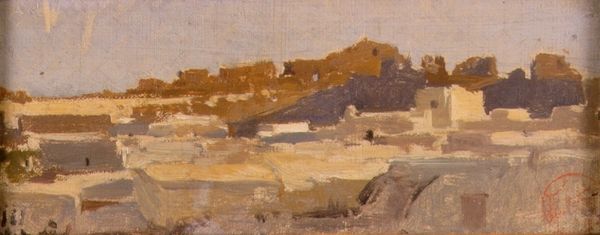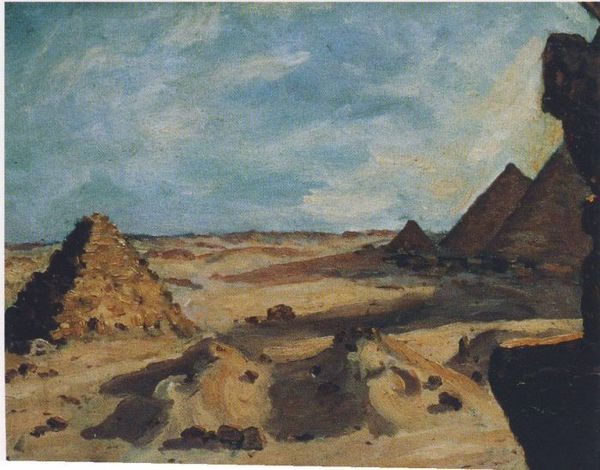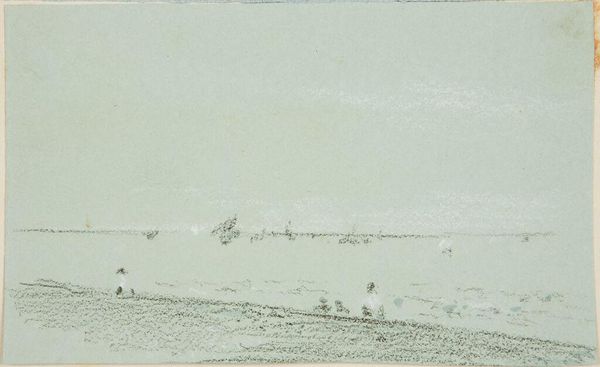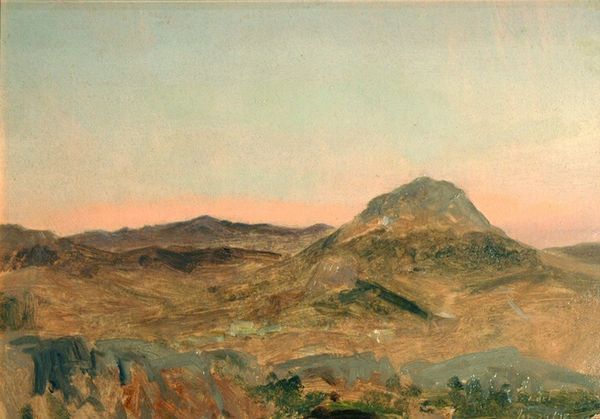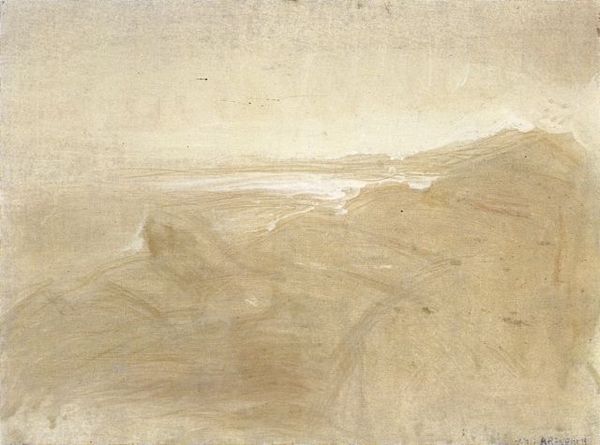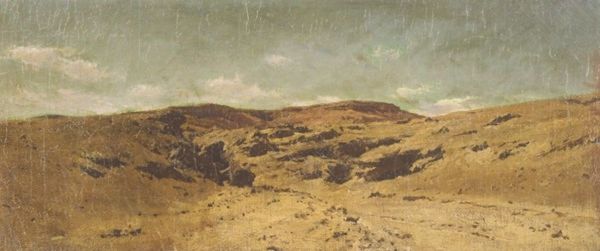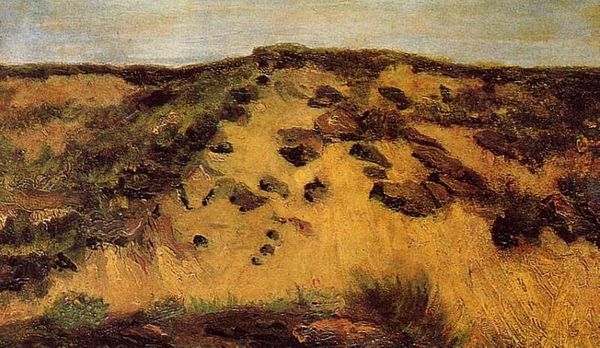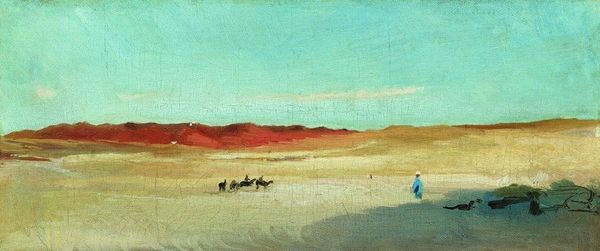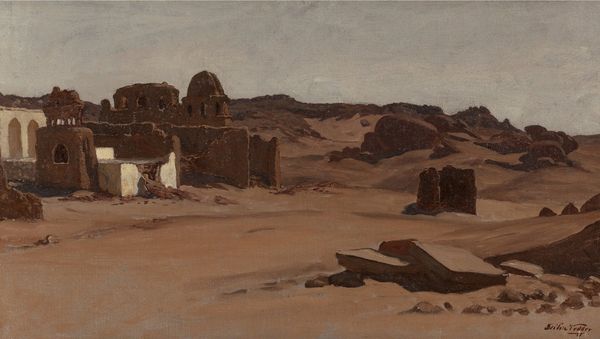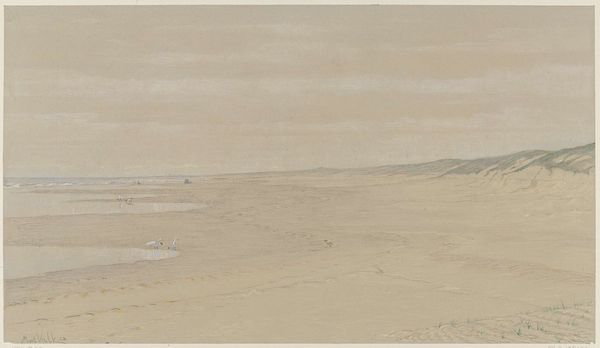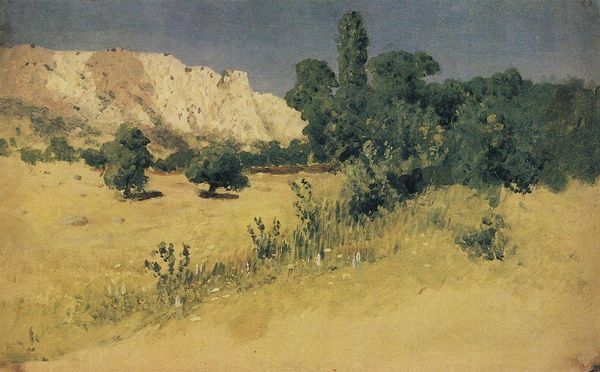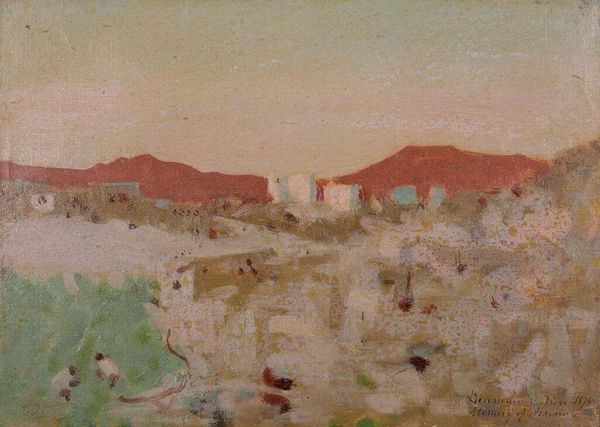
Corner of the Turkish Redoubt Captured on May 30 but Abandoned on May 31 1877
0:00
0:00
vasilyvereshchagin
Museum of Russian Art (Tereshchenko Museum), Kyiv, Ukraine
Copyright: Public domain
Editor: This is "Corner of the Turkish Redoubt Captured on May 30 but Abandoned on May 31," painted by Vasily Vereshchagin in 1877. It looks like an oil painting on canvas. I’m struck by the desolate scene; it feels heavy with unspoken stories. What do you see in this piece, from your perspective? Curator: What immediately draws my eye are the stark monuments juxtaposed with the captured redoubt, almost as if the landscape itself is breathing a sigh of war’s transience. Look at the subdued palette, drained of vivid color, emphasizing a landscape burdened by conflict. How might Vereshchagin be using these visual cues to convey a message beyond the immediate scene? Editor: It almost feels like the land is mourning. The abandoned redoubt contrasts with those towering monuments; the monuments look oddly triumphant. It’s confusing! Curator: Precisely! Are those monuments actually celebrating victory or do they act as silent witnesses, perhaps even markers of loss? Vereshchagin, having witnessed firsthand the horrors of war, often used symbols to critique militarism. Does the imagery challenge traditional notions of heroism associated with warfare? Consider the soldiers, nearly invisible. What could their symbolic function be in a painting supposedly commemorating a capture? Editor: They seem to blend into the land almost like forgotten casualties rather than celebrated heroes. So the desaturated colours are used to give us a psychological clue as to what to expect from this artwork? Curator: Exactly, and it leaves a lingering sense of emptiness, challenging viewers to question the true cost of war beyond immediate victories. We can explore war not as glory, but as an existential landscape –a visual encoding of collective trauma. Editor: This completely shifts my perspective. I had only seen the abandonment in the painting, but now I also see a more profound questioning of war’s impact. Thanks. Curator: And now hopefully you will remember how cultural memory of conflict transforms over time!
Comments
No comments
Be the first to comment and join the conversation on the ultimate creative platform.
